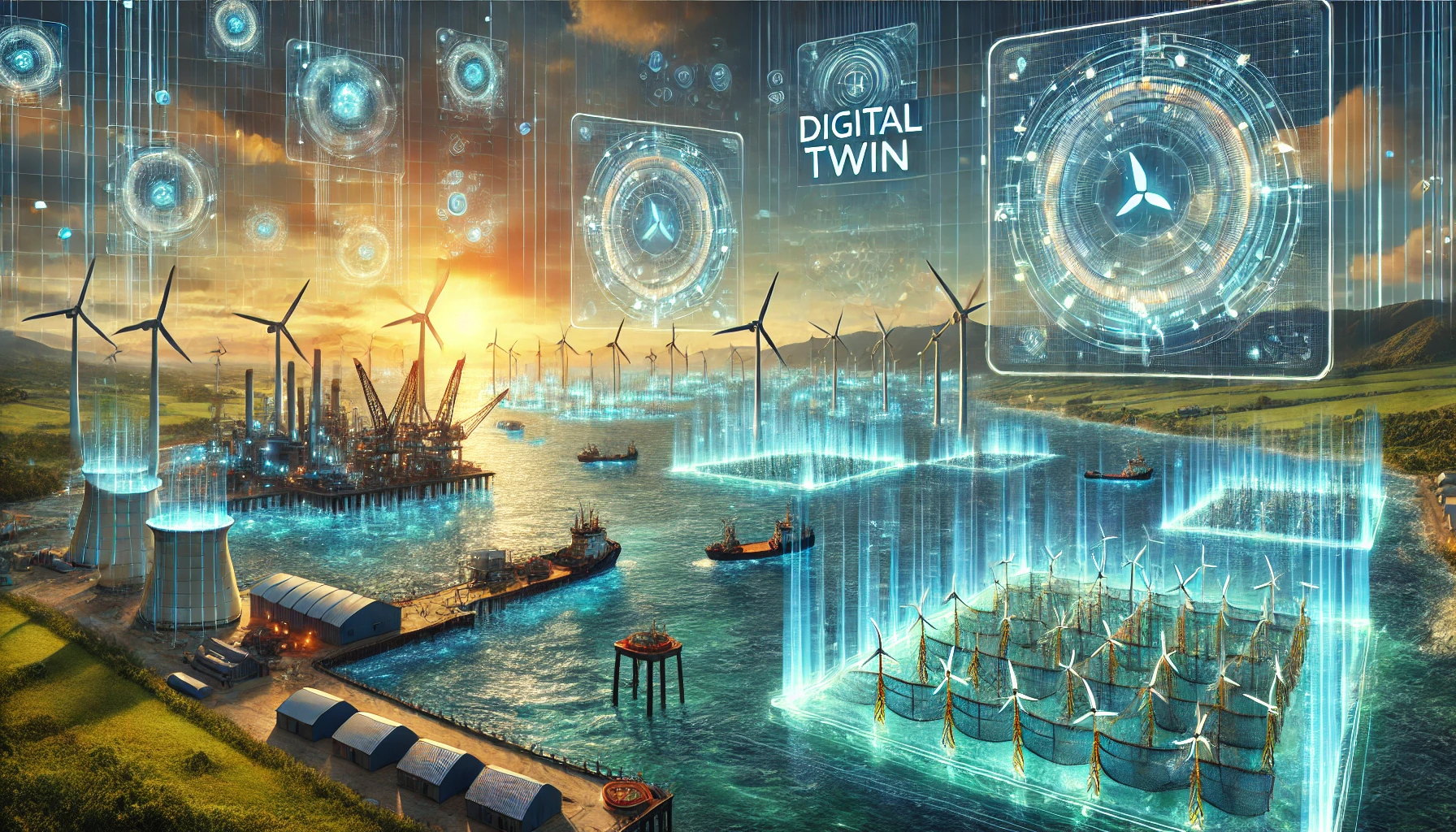Transforming the Blue Economy: How Digital Twin Technology Redefines Sustainability
Digital Twin (DT) technology is transforming the blue economy by enhancing efficiency, sustainability, and risk management across sectors like marine energy, shipping, and aquaculture. However, challenges like high costs, interoperability, and uneven global adoption require international collaboration and innovative solutions for widespread impact.

Digital Twin (DT) technology is revolutionizing the blue economy, encompassing critical sectors like marine energy, shipbuilding, aquaculture, and ocean sustainability. Researchers from Dalhousie University's Maritime Risk and Safety Research Group have conducted an in-depth study to explore how DTs are being utilized to enhance operational efficiency, sustainability, and risk management while contributing to the achievement of Sustainable Development Goals (SDGs). The study employs bibliometric analysis to uncover research trends, highlight emerging areas, and identify challenges in the adoption of DTs across the blue economy. It emphasizes the potential of this technology to transform maritime industries and environmental conservation initiatives globally.
What Makes Digital Twins a Transformative Tool?
A Digital Twin is a virtual replica of a physical system or asset, connected through real-time data exchange. This integration allows precise simulation, monitoring, and optimization of operations. DTs provide advanced decision-making tools that improve efficiency and predictability across multiple sectors. In marine energy, for instance, DTs are used to monitor offshore wind turbines, optimizing performance and reducing maintenance costs. In aquaculture, they enable real-time monitoring of fish nets and feeding schedules, ensuring healthier stock and more sustainable operations. Beyond individual applications, DTs hold promise for addressing broader challenges such as ocean pollution management, disaster preparedness, and biodiversity conservation. This technology is rapidly gaining recognition as a cornerstone of innovation in the maritime world.
Trends and Disparities in Digital Twin Research
The study reveals that scholarly interest in DT applications within the blue economy has grown significantly over the past decade, particularly in marine energy and shipping. These two sectors dominate the research landscape, reflecting their pivotal role in global trade and renewable energy transitions. Meanwhile, emerging fields like aquaculture, ocean cleanup technologies, and deep-sea mining are also gaining traction, albeit more slowly. However, the research also highlights stark geographical disparities, with advanced economies leading in both technological implementation and academic contributions. Developing regions lag behind, underlining the need for international collaboration to democratize access to DT technologies and ensure their benefits are shared equitably.
Overcoming Barriers to Digital Twin Adoption
Despite their transformative potential, several barriers hinder the widespread adoption of DTs in the blue economy. High costs remain a significant challenge, especially for developing nations and small-scale industries. Additionally, interoperability issues, lack of standardized frameworks, and ethical considerations regarding data security and privacy complicate implementation. To address these challenges, the researchers advocate adopting internationally recognized frameworks like FAIR (Findable, Accessible, Interoperable, and Reusable) and TRUST (Transparency, Responsibility, User focus, Sustainability, and Technology). These principles can help create a robust foundation for the ethical and practical deployment of DTs across diverse sectors.
Another critical focus is the development of cost-effective DT solutions to expand accessibility, particularly in resource-constrained environments. Advances in artificial intelligence and machine learning are crucial for enhancing the predictive capabilities of DTs, enabling them to generate actionable insights from complex datasets. By reducing the financial and technical barriers to adoption, DTs can become a more inclusive technology that benefits a broader range of stakeholders in the blue economy.
Unlocking New Potential with Digital Twins
The study underscores the versatility of DTs in addressing a wide range of challenges in the blue economy. In marine reserve management, for instance, DTs can monitor ecological changes, supporting conservation efforts and biodiversity protection. Similarly, in coastal protection, virtual modeling can aid in designing resilient infrastructure to combat rising sea levels and extreme weather events. These applications demonstrate the potential for DTs to extend their impact beyond industrial optimization, fostering cross-sectoral collaboration and innovation.
Looking to the future, the researchers identify several priority areas to advance the role of DTs. These include improving scalability and affordability, expanding applications into underexplored fields, and fostering international partnerships to address shared global challenges. By aligning with international goals and investing in training and education, DTs can serve as a cornerstone for sustainable growth and resilience in ocean-based industries.
The Future of Digital Twins in the Blue Economy
Digital Twin technology is poised to play a central role in driving innovation and sustainability across the blue economy. The researchers emphasize the importance of addressing barriers to adoption while leveraging the transformative capabilities of DTs to unlock new opportunities. Investments in research and development, coupled with policy interventions and international collaboration, can help realize the full potential of DTs. As the maritime industry evolves to meet the demands of a changing world, Digital Twin technology will be instrumental in ensuring its sustainability, resilience, and contribution to global development goals.
With their ability to simulate, optimize, and predict, DTs offer a unique opportunity to tackle some of the most pressing challenges in maritime industries. By fostering inclusivity, advancing technical capabilities, and creating cost-effective solutions, this technology can redefine the future of the blue economy. The findings of this study highlight the urgency and importance of continued exploration and innovation in this field to ensure a sustainable and equitable maritime future.
- FIRST PUBLISHED IN:
- Devdiscourse









